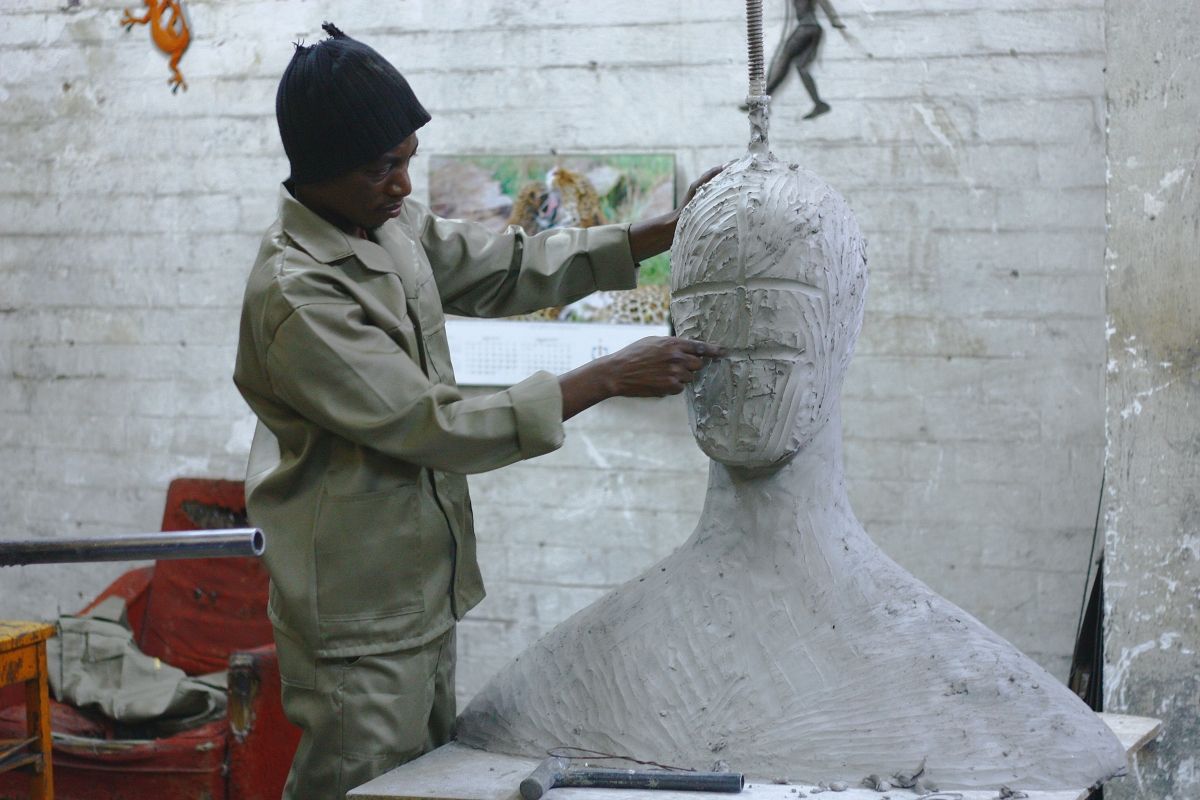Purpose Quest 7: You are Great at Something
A recent Gallup poll
revealed 85% of the world’s population hate their job and especially their boss. “It is very difficult to have a meaningful life without meaningful work,” said Jim Collins in Good to Great.

According to a recent poll, “finding a new job” is #4 out of the top 10 New Year Resolutions. When it comes to our careers, the goal should be to move toward operating within our strengths and abilities as much as possible. Doing so brings joy and fulfillment like few other things in life. If you can also align one or some of your passions with your career, it’s a plus, but if not it doesn’t mean you can’t have a meaningful and fulfilling career.
For the last few posts, we’ve been delving into your micro purpose. Made up of your spiritual gifts, heart/passions, abilities/strengths, personality, experiences, and spheres of influence, I call it your micro purpose. Author Rick Warren calls this your S.H.A.P.E.
S – Spiritual Gifts
H – Heart/ Passion
A – Abilities/Natural Strengths
P – Personality
E – Experiences
S – Spheres of Influence (added by me)
Today, we are going to focus on the “A” or your abilities and natural strengths.
Natural strengths are just that; they are the abilities that come naturally to you; the ones you are born with.
There is one caveat. Just because you are good at something doesn’t mean it’s a strength. In order for it to be a strength, it must bring you joy and energy.
What good is it to do something you are proficient at but hate?
Operating in your strengths should bring you joy and energy.
Click To Tweet
Here’s an example from my own life. I’m fairly good at organizing. I can see the big picture in my head and the steps it takes to get there (I like that part). I can also manage details too, but I hate that part. It doesn’t bring me joy or life. It saps my joy and energy. My ability to see the big picture and organize it into bite-sized pieces comes from one of my primary spiritual gifts – the gift of leadership. Managing details is something I’m good at, but it isn’t a spiritual gift or one of my strengths. I love to lead. I hate to manage.
Leaning Into Your Strengths
It’s been suggested over the years that we need to spend more time leaning into our strengths than working on our weaknesses. Take a pro baseball player for example. As the Harvard Business Review points out, “Why should a natural third basemen labor to develop his skills as a right fielder? The alternative is to foster excellence in the third basemen by identifying and harnessing his unique strengths.”
Spend more time developing your strengths than improving your weaknesses.
Click To Tweet
In order to play to your strengths, you first need to have a clear understanding of what they are. There is more depth than I have time to go into here, but let me provide four steps to help you begin:
4 Steps to Fulfillment in Your Career
1) Mine for gold.
Self-discovery is like mining for gold. Socrates to succinctly stated, “An unexamined life is not worth living.” Identifying what gives you energy takes some digging and unearthing. You have to pay attention to how you feel when you do things. Did it make you feel joyful, excited, good or did it exhaust you, drain you, and make you want to crawl into a hole and die? I’m not primarily referring to physical exhaustion. You can do something that brings you joy and still be physically exhausted when you’re done. And one last thing. Identifying your strengths isn’t something you can do all by yourself. It is a combination of self-assessment, assessment tools, and what other people notice about you. Start by asking yourself some key questions.
In his Ted X Talk with over 15.5 million views, Adam Leipzig shares how to find your life purpose in 5 minutes by asking 5 questions:
- Who are you?
- What do you do?
- Who do you do it for?
- What do those people want or need?
- What do they get out of it as a result? What is the change or transformation they experience as a result of what you give them?
Assessment tools like the Clifton Srengths Finder Assessment can be helpful in this process as well. This helps identify your top five strengths or the areas where you (or team if being used in that context) have the greatest potential for building strength.
The RBSE or Reflected Best Self Exercise incorporates the input of other people to help you identify and leverage your strengths in work and life. I haven’t done this assessment, but from what I’ve read, it seems like it is very insightful.
2) Treat everything as an experiment.
Many parents start their children very early in competitive sports. While I’m not against competition (I don’t think every kid should get a trophy and I think learning to lose well is just as important as learning to win well), I am also not a fan of pushing young kids too far too fast in one thing. That’s why we’ve always encouraged our children to try different sports and activities until they find one they enjoy and have some potential in, then put their energy into that. At the end of the day, very few of our children probably are going to be pro athletes anyway.
What am I trying to say? Experimentation is important. One of the best ways to discover your strengths is to recognize your weaknesses. And that means finding out you’re not good at certain things or that they don’t bring you joy. Here is a mantra to live by:
Everything is an experiment.
Everything is an experiment.
Click To Tweet
At the end of the day, you need to get out there and try things. Adam Leipzig takes Socrates’ statement a step further by saying, “An unexamined life is not worth living, but if all your doing is examining, you’re not living!”
3) Believe in and invest in yourself
An undeveloped strength is a hobby. The late Michelangelo once said,
Every block of stone has a statue inside it and it is the task of the sculptor to discover it.
Your strengths are like a raw block of stone. They are already there, but the stone must be chipped away little by little in order to find the statue within. Life is a discovery process, and we must become life-long learners who keep our sense of curiosity to find and develop our strengths and our purposes.
The 10,000 Hour Rule
Did you know it takes about 10,000 hours of practice to achieve expertise in anything? And it’s not just casual practice, it has to be deliberate practice. Deliberate practice says Mark Batterson, is three-dimensional. It’s made up of 1) well-defined goals, 2) reverse engineering (taking best practices, adapting, and adopting them to your unique situation, and 3) effort – anything less than 70% effort maintains the status quo. 1
There’s no way around hard work when if you want to be really good at something. It’s the difference between Yo-Yo Ma and a violin player you’ve never heard of. It’s that simple.
4) Pace yourself and do the work.
There is no such thing as an overnight success. You don’t get where you want to be overnight no matter how good you are. And if you do, you probably won’t be able to hang on to it. It usually takes twenty years to be an overnight success. Develop your skills, keep practicing, take calculated risks, and eventually, you will get there with lots of practice and hard work!
(micro) Purpose Question #7
What are your natural strengths, and abilities? Take one or more of the tests mentioned above in the “Identify Your Strengths” section. The Hi gh 5 Test (a free strengths test) is an easy place to start. Also, ask 3-4 people around you, “What do you feel my strength are? Can you give me some specific examples when I used those strengths in a way that was meaningful to you?”
Now write a concise statement and add it to your answers from questions 1, 2, 3, 4, 5, and 6.
What resources have you found helpful for identifying your strengths and abilities?
Missed One?
If you missed a post, you can go back and read them all here:
- Purpose Quest Intro: When Your Purpose Seems Foggy and Unclear
- Purpose Quest 1: Dealing with Your Daddy Issues
- Purpose Quest 2: You Are Not a Waste of Space
- Purpose Quest 3: Your Purpose Is Not a Mystery
- Purpose Quest 4: You’ve Found Your Purpose, Now What?
- Purpose Quest 5: Discovering Your Spiritual Gifts
- Purpose Quest 6: Passion Inspires Purpose
- Purpose Quest 8: You Are One-of-a-kind. Don’t Waste It!
- Purpose Quest 9: There Is Purpose In Your Pain
- Purpose Quest 10: Finding Your People
Endnotes
1 Batterson, Mark, The Way of the Wilderness, February 23, 2020, a sermon from National Community Church.
Photo by The Digital Marketing Collaboration on Unsplash
Share this Post:











